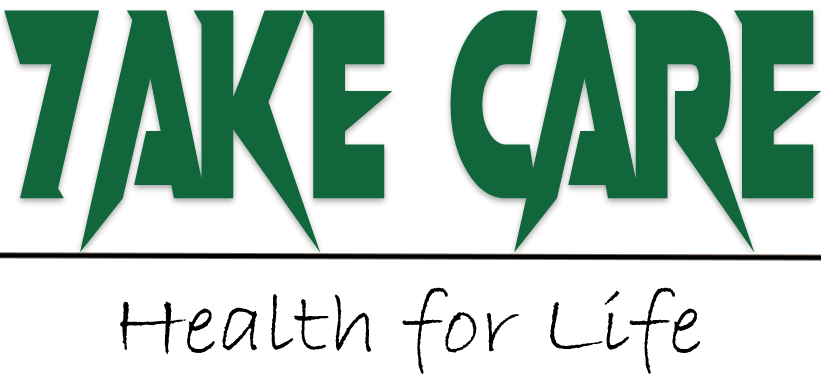Last updated on March 5th, 2024 at 06:56 pm
Table of Contents
ToggleCongratulations! If you’re reading this, you might be on the exciting journey of pregnancy or planning to embark on it soon. Pregnancy is a remarkable experience filled with anticipation, joy, and some inevitable challenges. We’re here to guide you through the first month and the early stages of pregnancy, helping you understand what to expect from week to week. Let’s dive into the fascinating world of pregnancy care, focusing on the very early signs of pregnancy and the first trimester’s body changes and symptoms.
1 Week Pregnant: The Beginning
At just one week pregnant, you may not even know you’re expecting! This is the week when fertilization occurs, and your baby-to-be is still a tiny ball of cells. The most noticeable sign might be a missed period, but it’s too early for any significant symptoms.
2 Weeks Pregnant: The Wait Begins
At this stage, your body might be preparing for pregnancy, but again, there are no noticeable symptoms. You might still be waiting for your next period, or if you’ve been trying to conceive, you might be feeling a mix of excitement and impatience.
3 Weeks Pregnant: Implantation Time
Around week three, some women experience very subtle changes, such as mild spotting or breast tenderness. These signs could indicate the embryo’s implantation into the uterus.
4 Weeks Pregnant: Early Signs Emerge
The end of the first month marks a crucial point. Some common early signs of pregnancy at this stage include:
- Missed Period: A classic sign. If your period is late, it’s time to take a pregnancy test.
- Fatigue: You might feel unusually tired.
- Breast Changes: Soreness, swelling, or darkening of the areolas.
- Frequent Urination: You may find yourself making more trips to the bathroom.
- Mild Cramping: As your uterus starts to stretch, you might feel some discomfort.
First Trimester: Symptoms and Changes Week by Week
The first trimester spans weeks 1 to 12 and is a period of rapid development. Here’s a breakdown of what you might experience each week:
Week 5-6: Morning Sickness and More
- Morning Sickness: Nausea and vomiting can become more frequent.
- Food Aversions: Certain smells or tastes may make you queasy.
- Increased Urination: This continues as your uterus expands.
- Mood Swings: Hormonal changes can lead to emotional ups and downs.
Week 7-8: Baby’s Growth
- Visible Bump: Some women start showing, but it varies.
- Breast Growth: Your breasts continue to change and may become more tender.
- Heartbeat: An ultrasound might reveal your baby’s heartbeat.
Week 9-10: Baby’s Movements
- Baby’s Movements: Though tiny, your baby starts moving.
- Weight Gain: You may gain some weight due to increased blood volume and breast changes.
- Skin Changes: Some women experience skin darkening or acne.
Week 11-12: Wrapping Up the First Trimester
- Energy Boost: You might start feeling more energetic.
- Visible Bump: If you haven’t already, you’ll likely notice a growing belly.
- Increased Appetite: Your body requires extra nutrients for your baby’s development.
Signs Your Pregnancy is Going Well in the First Trimester
While pregnancy can be challenging, certain signs indicate a healthy first trimester:
- Steady Weight Gain: Gradual weight gain is normal.
- Normal Blood Pressure: Regular check-ups help monitor this.
- No Severe Pain: Mild discomfort is typical, but severe pain isn’t.
- Regular Fetal Movement: Feeling your baby move is reassuring.
Danger Signs of Pregnancy in the First Trimester
While most pregnancies progress smoothly, it’s essential to be aware of potential red flags:
- Heavy Bleeding: This could indicate a miscarriage.
- Severe Abdominal Pain: Seek immediate medical attention.
- Severe Nausea and Vomiting: Can lead to dehydration.
- High Fever: Could be a sign of infection.
Also Read:
-> Pregnancy Care Week by Week Fetal Development
-> Pregnancy Care Week by Week Exercise Routine
-> Pregnancy Care Week-by-Week Diet Plan
Second Trimester: Weeks 13-27 – The Golden Period
The second trimester, often called the “golden period” of pregnancy, is typically a time of relief for many expectant mothers. By week 13, you might find that some of the first trimester symptoms are beginning to ease up. Here’s what you can expect during these weeks:
Week 13-16: A Time for Milestones
- Morning Sickness Relief: Nausea usually subsides, and your appetite might return to normal.
- Baby’s Movements: You might start feeling those delightful flutters as your baby moves.
- Energy Surge: Many women experience increased energy levels.
- Glowing Skin: Your skin might appear clearer and more radiant.
- Visible Bump: Your belly begins to show more prominently.
Week 17-20: Halfway There!
- Baby’s Gender: An ultrasound can often reveal your baby’s gender.
- Growing Appetite: You’ll need those extra calories for your growing baby.
- Kicks and Punches: Those flutters become distinct kicks and punches.
- Leg Cramps: Some women experience leg cramps during the night.
- Linea Nigra: A dark line might appear on your belly.
Week 21-24: Preparing for Arrival
- Braxton Hicks Contractions: These are practice contractions as your body gets ready for labor.
- Swelling: Some swelling in your feet and ankles is normal.
- Heartburn: It can become more frequent as your baby grows.
- Weight Gain: Continue to gain weight steadily.
- Backaches: Your growing belly can put more strain on your back.
Week 25-27: The Final Stretch
- Breast Changes: Your breasts continue to grow and prepare for breastfeeding.
- Shortness of Breath: As your baby grows, your diaphragm may feel compressed.
- Baby’s Hiccups: You might feel your baby’s hiccups occasionally.
- Increased Appetite: Keep nourishing yourself and your baby.
Third Trimester: Weeks 28-40 – The Countdown Begins
The third trimester is the home stretch of pregnancy, and it brings with it some unique challenges as your baby grows rapidly and your body prepares for labor:
Week 28-32: Baby’s Rapid Growth
- Braxton Hicks Contractions: These can become more noticeable.
- Weight Gain: Continue to monitor your weight with your healthcare provider.
- Baby’s Position: Your healthcare provider will start tracking your baby’s position.
- Sleep Troubles: Finding a comfortable sleeping position can be challenging.
- Pelvic Pressure: Your baby’s head may engage in your pelvis.
Week 33-36: Preparing for Birth
- Frequent Urination: This may return as your baby presses on your bladder.
- Nesting Instinct: You might feel a strong urge to prepare for the baby’s arrival.
- Stretch Marks: Some women notice stretch marks appearing on their belly.
- Breast Changes: Your breasts may start leaking colostrum, a precursor to breast milk.
- Cervical Changes: Your cervix may start to soften and dilate as labor approaches.
Week 37-40: The Final Countdown
- Lightening: Your baby may drop lower into your pelvis, making breathing easier.
- Contractions: True labor contractions become more regular, intense, and closer together.
- Increased Discharge: Your body might produce more mucus in preparation for labor.
- Emotional Rollercoaster: Anticipation and anxiety can mix as your due date approaches.
- Baby’s Arrival: Anytime between weeks 37 and 40, your baby might make their grand entrance!
Conclusion:
Pregnancy is a remarkable journey filled with a multitude of physical and emotional changes. Each trimester and week bring new experiences and challenges, but it’s all part of the incredible process of bringing new life into the world. As you progress through your pregnancy, always remember to consult with your healthcare provider for personalized guidance and support.
With knowledge and a strong support system in place, you’re well-equipped to navigate the rollercoaster ride of pregnancy. Cherish this special time and the excitement of meeting your baby at the end of this incredible journey.
References:
American Pregnancy Association:
https://americanpregnancy.org/
Mayo Clinic:
https://www.mayoclinic.org/
WebMD:
https://www.webmd.com/
BabyCenter:
https://www.babycenter.com/
What to Expect:
https://www.whattoexpect.com/





